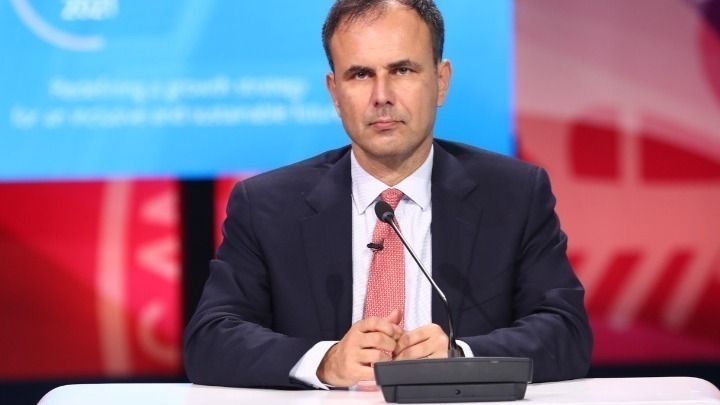The head of the prime minister’s financial office, Alexis Patelis, expressed his optimism regarding the course of the Greek financial system, noting that “in 2019, half of the portfolio consisted of bad loans, so you could not talk about a banking system that could grant loans. The primary goal was to change that.”
Speaking at the “Banking Summit: Paving the way for growth”, Patelis said that “from 2016 to 2019 there was no serious settlement of bad loans”, and added that “soon our fellow citizens will see their debts beginning to be reduced. There were banks that were considered to be in a difficult state, we saw a series of capital increases. Now we are talking about a completely different framework.”
According to Patelis, “the problem is now behind us” and what comes next is that the “banks must justify why they exist: they must grant loans, return to profitability, distribute dividends”. As he pointed out, “all four systemic banks are ready to channel loans to the private sector through the Recovery Fund,” stating that “this will soon be proved in practice.” “The government is helping by facilitating the process,” he added.
At the same time, he estimated that in addition to lending, the big challenges are digitisation and competition, saying that “from now on, other officials will be brought to the market with credit expansion”, citing as an example Viva Wallet, which has plans for credit expansion to small and medium-sized enterprises.”
He also said that “we will soon see a series of credit products that will surprise us with its complexity and range”, adding that “Greek banks have challenges and great opportunities ahead of them. They are no longer classified as cheap bank shares.”
He noted that “for a decade an entire generation has not received bank credit,” therefore, “here the banks must prove that they can take advantage of the opportunity.”
SOURCE; AMNA







